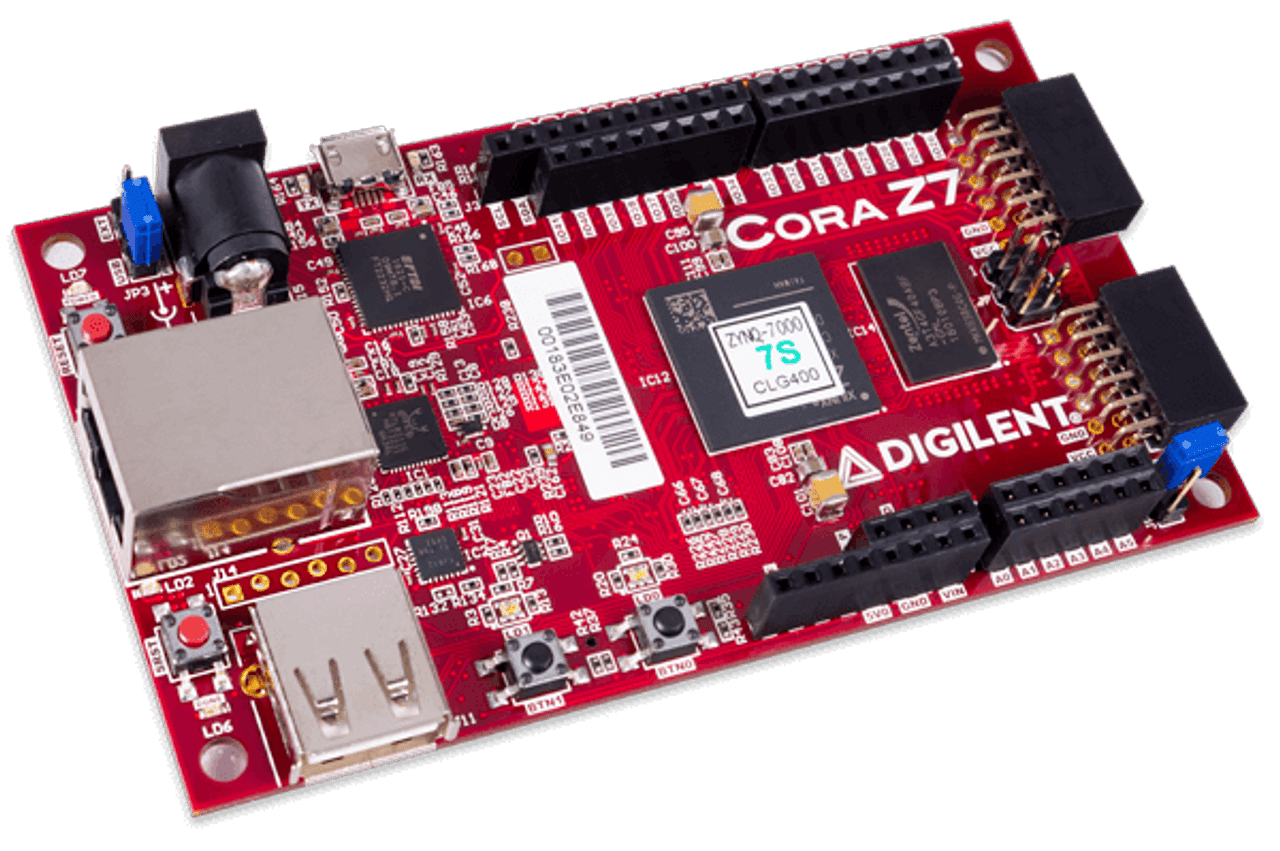Dev Kit Weekly: Digilent CORA Z7
March 31, 2023
Video
Digilent’s Cora Z7-07S is a development board leveraging a Xilinx Zynq-7000 series programmable SoC, which makes use of Arm’s CoreSight Architecture with a combination of a single-core ARM Cortex-A9 processor with a 28nm Xilinx Artix 7 based FPGA for optimized flexibility.

The 667MHz Zynq processor’s 21,000 logic cells and 14,400 thousand LUTs are housed within 3600 programmable logic slices, 60 digital signal processing slices, and 225 KB of block RAM with an additional 512 MB of DDR3 via 16-bit bus. Speaking of, there’s also a DDR3 memory controller with eight DMA channels and four high-performance AXI3 Slave ports. And speaking of controllers (ashamed smirk), the Zynq includes both high- and low-bandwidth peripheral controllers from 1G Ethernet and USB 2.0 to UART and SPI. The Cora Z7 is programmable through the on-chip JTAG and microSD card slot.

The Cora Z7 also provides multiple options for extending available I/O options, including two peripheral module (or Pmod) connectors to extend total FPGA I/O availability to 16; an unloaded expansion header for 12 more FPGA digital I/O; and an Arduino chipKIT Shield connector, which would add an additional 49 FPGA digital I/O options. The chipKIT Shield connector would also enable 6 single-ended zero to 3.3V analog inputs or 8 differential zero to 1V analog inputs to XADC.
All these features, connectors, etc. make the programmable Cora Z7 a very flexible development board that can be implemented in a pretty wide range of embedded applications. But there are a couple things this kit in particular will be especially good for. The Zynq 7000 processor on-board is often used, according to AMD Xilinx, in applications like ADAS, machine vision, professional cameras, medical endoscopes.
The Cora Z7 comes with access to AMD Xilinx’s Vivado ML SDK, designed for synthesis and analysis of hardware description language (HDL) designs. The latest version of Vivado has introduced new machine learning algorithms like intelligent design runs, ML-based logic optimization, and congestion and delay estimation — all of which can help speed up design closure. The SDK is also delivering an average 10% improvement on quality of results for complex designs (with a peak improvement of 50%) over the Vivado HLx Edition.

Seems like a pretty handy little board, doesn’t it? Definitely something useful to have on hand if you’re working on machine learning/vision projects that require lots of flexibility and efficiency.
Now, Digilent’s Cora Z7 development board is, as of now, out of stock on major distributor websites and Digilent itself until at least August of this year. If you don’t mind waiting until then to get your hands on one, it’ll only cost $149. But if you want one of these right now sooner, you can always enter this week’s raffle, linked below, for a chance to win one for free.




